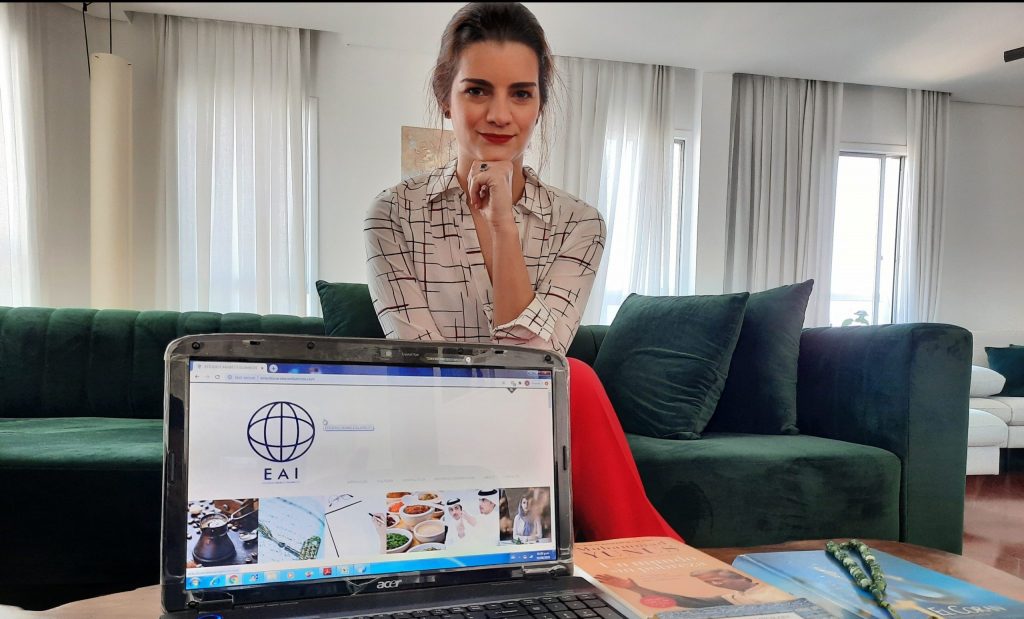São Paulo – Researcher Ana Laura Deleon launched last August her website Estudios Arabes e Islamicos, aimed at taking information on the Arab countries to the Spanish speakers. The virtual space features one section for academic papers and others for news and interactions. “The site aims at connecting people interested in learning more about the Arabs and Muslims. If you want to travel and learn about their culture, or maybe work with Arabs and learn about their trade, this is for you as it uses knowledge, which is the most relevant tool for building this relation with the rest of Latin America,” Deleon told ANBA.
Born in Uruguay, the researcher has lived in São Paulo for a year, where her husband Facundo Simón Fernández Guerra works as the Uruguayan commercial consul in Brazil. Having a degree in International Relations, once in Brazil she decided to create the website to showcase the studies she has developed since 2013, when she studied at the Catholic University of Uruguay, one of the few in the country to offer courses related to the Arab world.
Deleon also studied in institutions such as the Egyptian Center for Islamic Culture in Montevideo and in other countries as well, including Austria and United States. “I’m not an Arab descendant, but since I was a child I’m interested in the topic, particularly the issue of women. Uruguay has a small but fast-growing Arab community. It’s still an underdeveloped topic, and it became my profession researching about it,” she says.
To create the site, the scholar worked for seven months building content and technical structure. Now an independent researcher, she keeps writing papers and investigating topics related to the Middle East. “I have a support network in Uruguay, where I worked with Syrian refugees,” she says about the experiences she had in 2015 during the Syrian migration supported by then president José Mujica.

Deleon wants her website to reach not just the Uruguay audience but the entire Latin America. “Education is the fundamental pillar. It is a website for Spanish speakers, but it aims at introducing information about what happens in Brazil as well. This is a country with many institutions [linked to the Arab community]. For me, it is important to make this connection with Brazil as a reference. I believe that the language issue is not so complicated that can keep sister countries from sharing information,” she says about courses and events in Brazil that could contribute with knowledge to other countries in the continent and elsewhere.
Being able to spread this information on the internet has empowered Deleon’s work. “The internet changed it all. Understanding how important the social media have become is huge for me. The way of studying is faster, more dynamic, even more so now with the pandemic. Right now, it is important to have projects developed to speak this language [online],” she said. Currently she is pursuing a master’s in international Cooperation, Project Management and NGOs in a Spanish institution.
Her next step is working in humanitarian projects supporting Arab women in vulnerable situations. “Of course, when you start studying, you see that not all women are in that oppressed, abusive situation. Therefore, we want to help those who are but also change the negative view that people have on the Arab women. I want to work on this with WAHI, the woman’s committee of the Arab Brazilian Chamber of Commerce. I was so excited to learn about this work that I want to expand it and talk to all Latin American women to connect them with the Arab women,” Deleon finished.
For submitting papers, please send a message to: info.estudiosarabesislamicos@gmail.com
Translated by Guilherme Miranda




